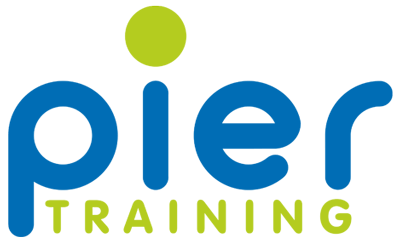COURSE
L4 Domestic and Sexual Abuse Support Worker
Next cohort start dates – 15 May 2025 / 25 June 2025 / 29 July 2025
The broad purpose of this occupation is to provide early intervention, specialist advocacy, emotional and practical support to those who are experiencing and recovering from domestic abuse and or sexual violence at all levels of risk. This includes the provision of information and advice, emergency accommodation, awareness raising, signposting and referral.
An employee in this occupation will be responsible for working as part of a co-ordinated community response, applying specialist knowledge and skills in a variety of contexts to provide advocacy and support to those facing or at risk from domestic and sexual violence and abuse to ensure safety, wellbeing, and recovery. They will carry out risk and needs assessments and undertake safety planning with survivors of domestic abuse and or sexual violence, and work within a multi-agency framework to ensure the safety of adult and child survivors of domestic abuse and or sexual violence, is prioritised.
Examples of some of the topics that will be covered in the training plan, but not limited to, are:
- Understand current gender inequality and oppression globally
- Intersectional and anti-oppressive approaches to working with survivors of trauma
- Institutional and individual advocacy
- Coordinated community responses to domestic abuse & sexual violence
- Engaging with the criminal justice system
Job Roles suitable for this qualification:
Examples of job roles this qualification is suitable for but not limited to are:
- Domestic Abuse Support Worker
- Domestic Violence Outreach Community Support Worker
- Black and Minoritised Specialist Support Worker
- Children and Young People Domestic Abuse Support Worker
- Independent Domestic Violence Advisor
- Independent Sexual Violence Advisor
- Refuge Support Worker etc.
Entry Requirements:
- Apprentices without level 2 English and maths will need to achieve this level prior to taking the End-Point Assessment. (Mandatory for age 16-18 year old learners, unless a valid exemption is provided, discretionary for learners aged 19+ ). Speak with our team to find out more about recently updated functional skills policy
- For those with an education, health and care plan or a legacy statement, the apprenticeship’s English and maths minimum requirement is Entry Level 3.
- A British Sign Language (BSL) qualification is an alternative to the English qualification for those whose primary language is BSL.
- Undertake the Enhanced Disclosure and Barring Service process and provide the result.
Duration:
The qualification usually takes around 18 months including 3 months EPA period. However, it is possible to complete earlier depending on the existing achievements and individual circumstances. This can be discussed with your tutor. The apprentice must spend at least 12 months on-programme and complete the required amount of off-the-job training in line with the apprenticeship funding rules.
Aims of this qualification
The aim of this qualification is to support the apprentice’s understanding of the 3 key areas covering the Knowledge, Skills and Behaviours (KSBs). This is a core and options apprenticeship. An apprentice will be trained and assessed against the core and one option. The options are:
- Independent Domestic Violence Advisor (IDVA)
- Children and Young People Domestic Abuse Support Worker (CYPDASW)
- Independent Sexual Violence Advisor (ISVA)
The core occupation duties of the Level 4 Domestic and Sexual Abuse Support Worker are as follows.
- Duty 1 – Respond to and manage information from survivors and supply information to external agencies.
- Duty 2 – Respond to and manage crisis situations whilst adhering to lone working policies and other relevant procedures.
- Duty 3 – Carry out risk assessment and safety planning with survivors whilst considering safeguarding issues and individual support needs.
- Duty 4 – Commit to equality and challenge inequality and discrimination in all aspects of practice.
- Duty 5 – Use different communication methods and adapt your style to achieve the desired outcomes for survivors.
- Duty 6 – Create a safe and appropriate environment for survivors within the context of your service using trauma informed approaches.
- Duty 7 – Manage and maintain casework and information sharing in line with legal requirements and organisational policy and procedures.
- Duty 8 – Raise awareness of the nature, prevalence, and consequences of all forms of domestic and sexual abuse and violence.
- Duty 9 – Support survivors through criminal and or civil court processes.
- Duty 10 – Support and engage with survivors to inform them of local and regional services.
- Duty 11 – Advocate for survivors and their families within multi-agency settings and processes.
- Duty 12 – Provide information and support to enable survivors to make their own informed choices towards recovery.
- Duty 13 – Maintain own wellbeing and personal development via training or supervision.
On Programme Learning:
On-programme assessment of the knowledge, skills and behaviours will lead to the final synoptic end-point assessment.
Apprentices will be allocated a qualified tutor to support the full completion of the apprenticeship and prepare them for the end-point assessment (sometimes 2 tutors will be required at different times for teaching different elements). The tutor will undertake engaging and interactive teaching, learning and support sessions with the apprentice on a regular basis (at least every 4-5 weeks), either remotely via Microsoft Teams or in the workplace if appropriate, to conduct teaching, learning and assessments. These will be planned with the apprentice and employer.
The tutor will manage a portfolio of evidence using an online electronic system called OneFile and give regular updates about progress. Apprentices can contact their tutor in between visits to discuss any aspect of their qualification and will be able to access their online portfolio 24/7.
Learning Outcomes:
- Level 4 Domestic and Sexual Abuse Support Worker Apprenticeship Standard
- Level 2 Functional Skills in English (Mandatory for age 16-18 year old learners, unless a valid exemption is provided, discretionary for learners aged 19+ ). Speak with our team to find out more about recently updated functional skills policy
- Level 2 Functional Skills in maths (Mandatory for age 16-18 year old learners, unless a valid exemption is provided, discretionary for learners aged 19+ ). Speak with our team to find out more about recently updated functional skills policy
Assessment Gateway
Before the apprentice is adjudged ready to undertake the end-point assessment by their employer and training provider, they will need to:
- Receive confirmation from the employer that the apprentice is deemed to be working at or above the level set out in the apprenticeship standard and ready to undertake the EPA
- Achieve Level 2 in English and maths Functional Skills (Mandatory for age 16-18 year old learners, unless a valid exemption is provided, discretionary for learners aged 19+ ). Speak with our team to find out more about recently updated functional skills policy
- Submit a portfolio of evidence to support the professional discussion
The purpose of the end-point assessment is to test (in a synoptic way) the knowledge, skills and behaviours of the apprentice as set out in the apprenticeship standard.
The end-point assessment:
- provides apprentices with a showcase opportunity to provide oral and documentary evidence of their knowledge, skills and behaviours developed throughout the apprenticeship.
- enables the independent assessor to assess the skills and behaviours of the apprentice by observing the apprentice in the course of their normal work.
- tests the knowledge acquired by the apprentice throughout the apprenticeship.
End-Point Assessment
An end-point assessment will be conducted by an approved independent End-Point Assessment Organisation (EPAO) listed on the Apprenticeship Provider and Assessment Register (APAR).
The end-point assessment will comprise two assessments. All assessments must be individually passed for the apprentice to be deemed competent:
-
- Presentation with Questions: In the presentation with questions, the apprentice delivers a presentation to an independent assessor on a set subject. The independent assessor asks at least 5 questions after the presentation. It gives the apprentice the opportunity to demonstrate the KSBs mapped to this assessment method. The presentation and questions will last for at least 45 minutes.
Grading for Presentation with Questions: Pass/Distinction
-
- Professional Discussion underpinned by a portfolio of evidence: A professional discussion is a 75-minute, formal two-way discussion between the apprentice and the independent assessor. The apprentice can refer to and illustrate their answers with evidence from their portfolio of evidence. The independent assessor asks at least 16 questions. It gives the apprentice the opportunity to demonstrate their depth of understanding across the KSBs and engages the apprentice in detailed discussions.
Grading for Professional discussion underpinned by a portfolio of evidence: Pass/Distinction
Overall apprenticeship standard grade: Pass/Distinction
Tutor credentials
Our tutor is a subject matter expert in domestic abuse, sexual violence, and trauma informed practice with over a decade of experience in the field, she holds a Master’s in Human Rights Law, several safeguarding qualifications, and is a qualified Independent Sexual Violence Advisor with six years’ experience working in a variety of frontline advocacy and support roles in both domestic abuse and sexual violence. Her roles included providing emotional support, utilising a trauma-informed, needs led, strengths based, intersectional, and anti-oppressive approach; as well as practical support, safety planning and advocacy to ensure holistic, best-practice survivor care was provided. She has worked with survivors of sexual and domestic abuse, as well as with young adult survivors.
Our tutor is also a Level 4 qualified Trainer with over 5 years’ experience delivering training to statutory, voluntary, and private organisations on a variety of subjects relating to Domestic and Sexual Abuse. She previously served on the College of Policing’s Domestic Abuse Matters editorial board and has delivered both the First Responder and Champion Training to Police Officers. Furthermore, she was instrumental in developing the Agored Cymru Level 4 Diploma in Advocacy and Support Skills for Working with Violence Against Women, Domestic Abuse and Sexual Violence (VAWDASV) Survivors, which included pathways to IDVA, ISVA and CYP specialist worker roles. She has also reviewed and fed back on the new Home Office IDVA and ISVA Guidance and the National Domestic Abuse and Sexual Violence Occupational standards.
Platforms we are approved on for this apprenticeship standard.


If you have already discussed joining a cohort with Pier Training, please click here to apply for this course. A Pier Training representative will contact you to discuss the next steps of your enrolment.
For new enquiries please submit your request here and a representative from Pier Training will contact you shortly.
